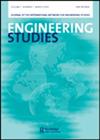The Backbone: Construction of a Regional Electricity Grid in the Arabian Peninsula
IF 1.3
3区 工程技术
Q2 EDUCATION, SCIENTIFIC DISCIPLINES
引用次数: 4
Abstract
ABSTRACT This article studies the production of a power grid across six Gulf Cooperation Council (GCC) countries, known as ‘the backbone,’ which has been conceptualized as an answer to power outages. First it analyzes how experts working with and around the GCC Interconnection Authority (GCCIA) advance claims to a regional territorial imagination. Second, it shows that the construction of the grid not only indicates a shift in the material arrangement of wires and substations, but also necessitates new understandings of transparency and a new formula for the electricity price, facilitating the cutting of government subsidies along with additional price increases. Third, it interrogates how electricity is consumed in the region. Policy-makers expected that electricity price increases would lead to lower rates of consumption. Yet after price hikes were instituted, analysts reported how they had no impact. Users behaved in ways that the grid’s engineers did not anticipate. Overall the article shows how various actors conduct ‘boundary work,’ that is, how they set limits between the political, the financial and the technical while producing the backbone. The article explores how this boundary work helps stabilize a particular sociotechnical imaginary of energy security in the GCC, masking anxieties associated with a future beyond oil.主干:阿拉伯半岛区域电网建设
摘要本文研究了海湾合作委员会(GCC)六个国家的电网生产情况,该电网被称为“骨干”,被概念化为停电的答案。首先,它分析了与海湾合作委员会互联管理局(GCCIA)合作的专家如何将主权主张推向地区领土想象。其次,它表明,电网的建设不仅表明电线和变电站的材料安排发生了变化,还需要对透明度有新的理解,并制定新的电价公式,从而有助于削减政府补贴,同时增加电价。第三,它询问该地区的电力消耗情况。政策制定者预计,电价上涨将导致消费率下降。然而,在价格上涨开始后,分析师们报告说,价格上涨没有产生任何影响。用户的行为方式是网格工程师没有预料到的。总的来说,这篇文章展示了不同的行动者如何进行“边界工作”,也就是说,他们如何在产生骨干的同时,在政治、金融和技术之间设定限制。这篇文章探讨了这种边界工作如何有助于稳定海湾合作委员会对能源安全的特定社会技术想象,掩盖与石油以外的未来相关的焦虑。
本文章由计算机程序翻译,如有差异,请以英文原文为准。
求助全文
约1分钟内获得全文
求助全文
来源期刊

Engineering Studies
ENGINEERING, MULTIDISCIPLINARY-HISTORY & PHILOSOPHY OF SCIENCE
CiteScore
3.60
自引率
17.60%
发文量
12
审稿时长
>12 weeks
期刊介绍:
Engineering Studies is an interdisciplinary, international journal devoted to the scholarly study of engineers and engineering. Its mission is threefold:
1. to advance critical analysis in historical, social, cultural, political, philosophical, rhetorical, and organizational studies of engineers and engineering;
2. to help build and serve diverse communities of researchers interested in engineering studies;
3. to link scholarly work in engineering studies with broader discussions and debates about engineering education, research, practice, policy, and representation.
The editors of Engineering Studies are interested in papers that consider the following questions:
• How does this paper enhance critical understanding of engineers or engineering?
• What are the relationships among the technical and nontechnical dimensions of engineering practices, and how do these relationships change over time and from place to place?
 求助内容:
求助内容: 应助结果提醒方式:
应助结果提醒方式:


